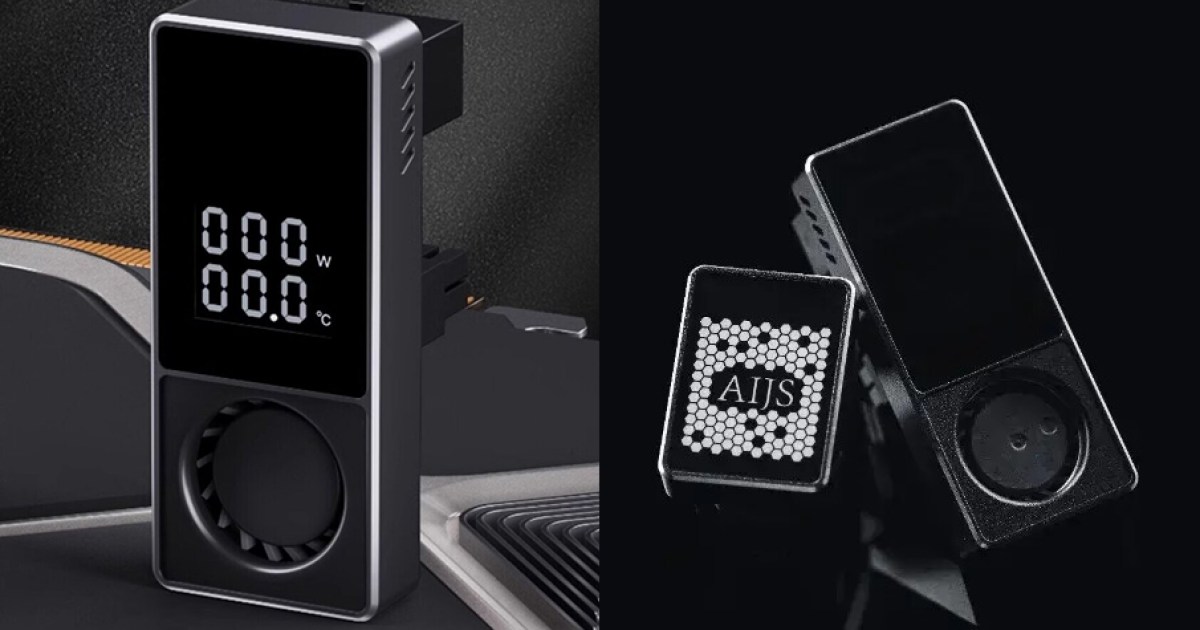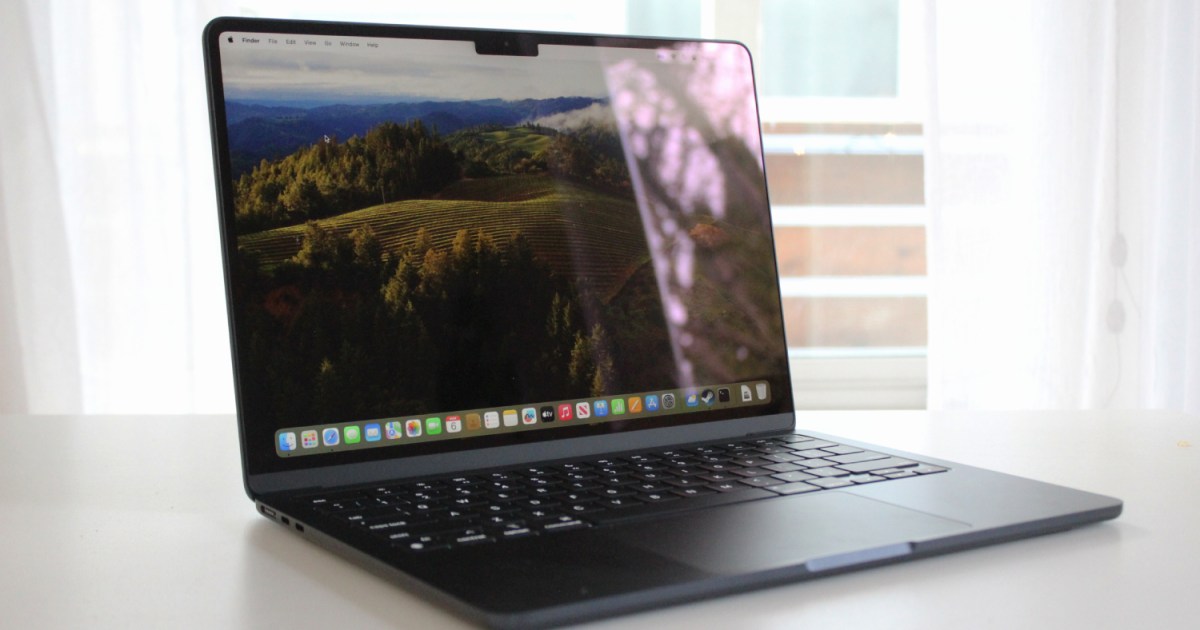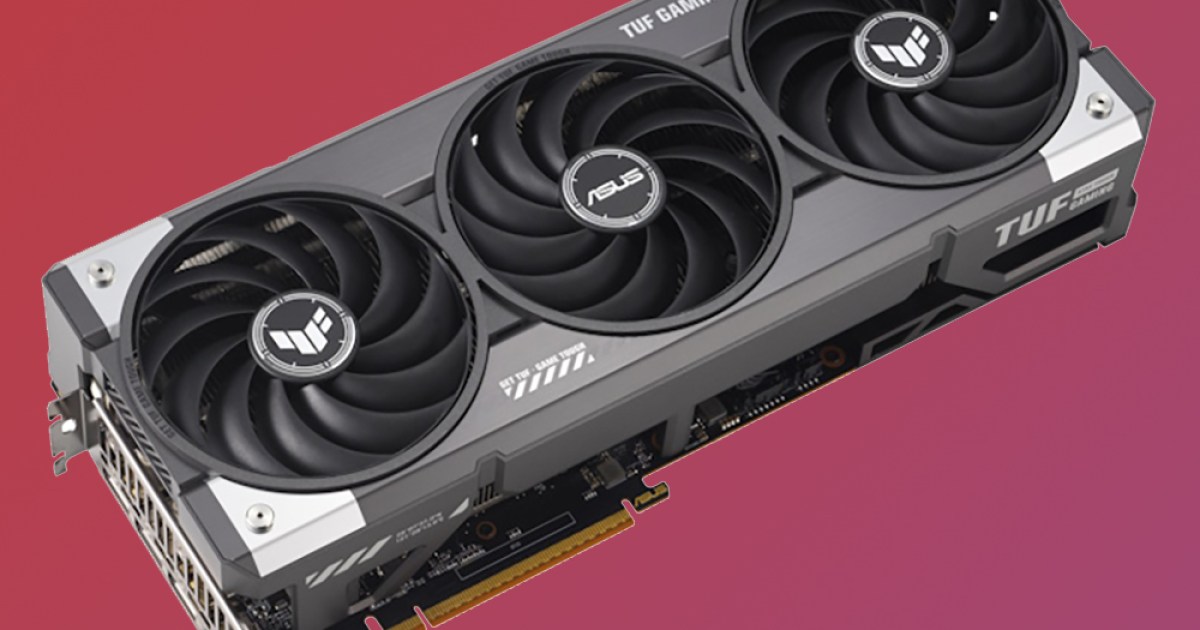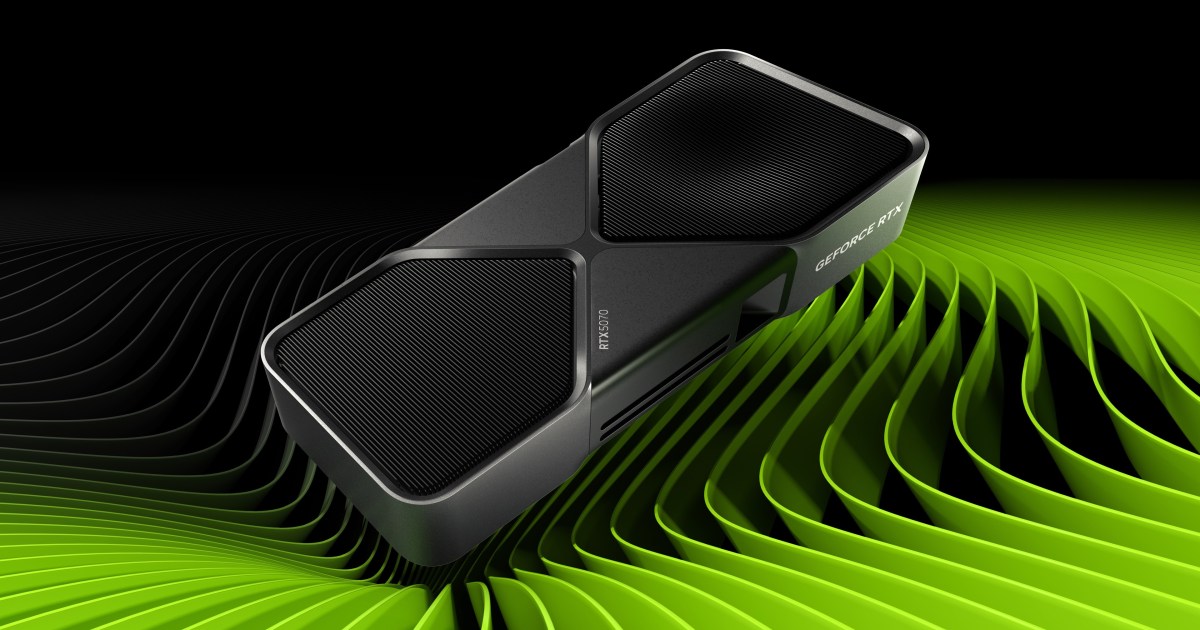The 12VHPWR power connector, introduced with Nvidia’s RTX 40-series GPUs, has been plagued by reports of melting and overheating, causing concern among PC gamers. A Chinese manufacturer has developed a novel 12VHPWR adapter with active cooling and real-time power monitoring to address these issues. This innovative adapter aims to improve safety by tackling two key problem areas: cable bending and excessive heat.
Angled Design and Active Cooling for Enhanced Safety
Unlike traditional connectors that can be strained by tight PC case layouts, this adapter boasts a 180-degree angled design. This reduces stress on the cable and minimizes the risk of improper connection, a major contributor to overheating. Furthermore, the adapter incorporates an integrated cooling fan, a first for GPU power connectors, to actively dissipate heat. An LCD screen provides real-time temperature and power consumption readings, allowing users to detect potential overheating before it causes damage.
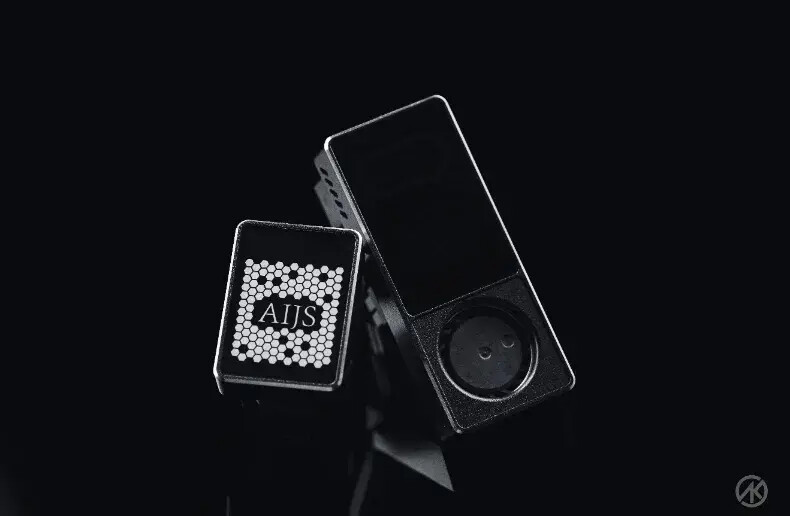 A 12VHPWR angled adapter by a Chinese manufacturer featuring a cooling fan and LCD TaoBao
A 12VHPWR angled adapter by a Chinese manufacturer featuring a cooling fan and LCD TaoBao
Currently available on the Chinese online shopping platform TaoBao for approximately $30, the adapter is compatible with RTX 40-series GPUs. There’s no mention of compatibility with RTX 50-series cards. This adapter offers a potential solution for current RTX 40-series owners facing connector issues.
Third-Party Solutions and the Shift to 12V-2×6
Other third-party cable manufacturers, including Ezdiy-fab and Cablemod, have also introduced 12VHPWR adapters with heatsink solutions. However, the long-term solution lies in Nvidia’s transition to the revised 12V-2×6 standard for future GPUs.
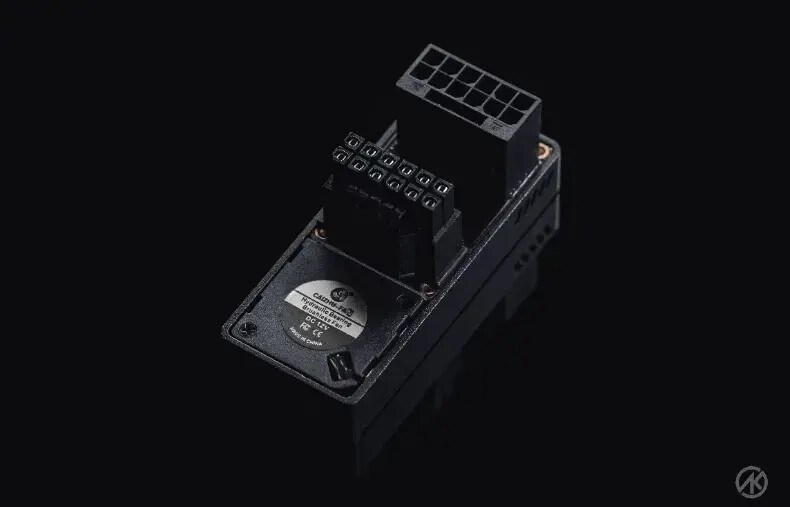 A 12VHPWR angled adapter by a Chinese manufacturer featuring a cooling fan and LCD TaoBao
A 12VHPWR angled adapter by a Chinese manufacturer featuring a cooling fan and LCD TaoBao
The 12VHPWR Controversy and its Aftermath
The 16-pin 12VHPWR connector has been a source of controversy since its debut with the RTX 40-series, particularly the RTX 4090. Numerous reports surfaced of connectors melting due to excessive heat buildup and poor cable seating. Investigations pointed to improper cable insertion, coupled with high power draw, leading to increased resistance and heat generation. While Nvidia initially maintained that a fully seated connection would prevent failures, continued reports led to further scrutiny of the connector’s design.
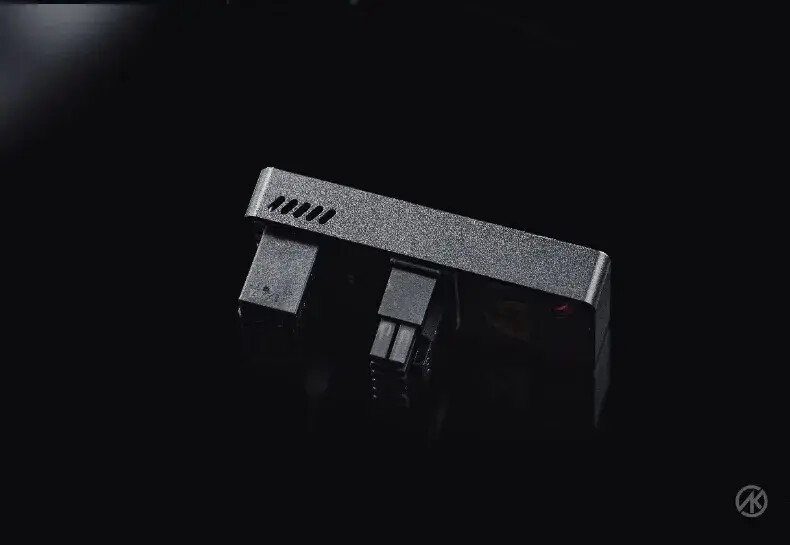 A 12VHPWR angled adapter by a Chinese manufacturer featuring a cooling fan and LCD TaoBao
A 12VHPWR angled adapter by a Chinese manufacturer featuring a cooling fan and LCD TaoBao
The issue prompted investigations by regulatory bodies and tech experts, eventually leading PCI-SIG to introduce the revised 12V-2×6 connector for the RTX 50-series. This new standard aims to improve power efficiency and safety.
RTX 50-Series: Persistent Concerns Despite New Standard
Despite the adoption of the 12V-2×6 connector in the RTX 50-series, concerns regarding melting haven’t completely disappeared. A Reddit user reported a melted 16-pin connector on an RTX 5090 while using a previous-generation third-party cable. The cable manufacturer later clarified that only its 2025-manufactured 12V-2×6 cables are fully compatible with the RTX 50-series, even though the new connector is backward compatible with the 12VHPWR.
Addressing the 12VHPWR Challenge
This new adapter with active cooling and real-time monitoring offers a promising solution to mitigate the risks associated with the 12VHPWR connector, especially for RTX 40-series owners. While the 12V-2×6 standard offers a long-term fix, solutions like this adapter can bridge the gap and enhance safety for existing hardware. The proactive approach of monitoring power and temperature provides users with greater control and peace of mind.



